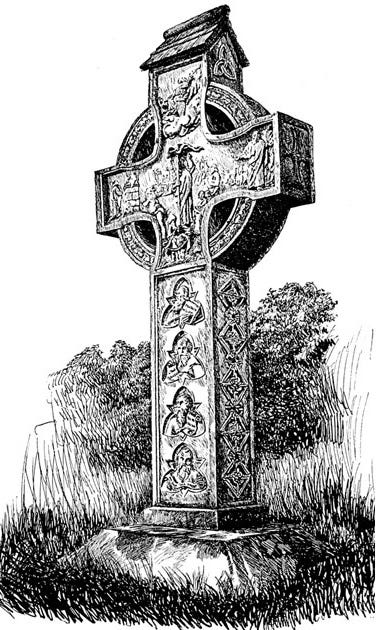Hit By Friendly Fire, Part 3
A Video Bible Message: What to do when you are hurt by another believer
There is a peculiar kind of pain that only those within the household of faith can inflict. When the wounding comes not from the world but from within the Church, it stings deeper, echoing the words of the psalmist: “It is not an enemy who taunts me—then I could bear it... but it is you, a man, my equal, my companion, my familiar friend” (Ps. 55:12–13).
This third reflection in our series Hit by Friendly Fire turns us toward Gethsemane, the olive-press of the soul. It is there, beneath the ancient trees, that the Lord Himself bore the anguish not only of the Cross to come but of the kiss that betrayed Him. In Gethsemane, we find not just Christ’s sorrow, but His response—submissive, prayerful, surrendered.
If we would learn how to respond to wounds dealt by fellow believers, we must follow Him into that darkened garden. There we learn three holy lessons: to take up our cross, to take off our crown, and to go with Jesus to the place of surrender. Gethsemane does not remove the pain, but it reveals the path of redemption through it.
Faith for Living with Dr. Michael A. Milton is a broadcast ministry of Faith for Living, Inc., a Christian nonprofit from North Carolina dedicated to reaching as many as possible by all means available according to the Scriptures.
The Video Message
My Manuscript for the Sermon
Allow me to take you behind the curtains of pastoral ministry for just a moment.
For many years I wrote a complete manuscript for every sermon I preached. While I did not read my sermons from the pulpit, I found the discipline of writing a sermon manuscript multiplied and maximized my ministry: to the disciples in our community who wanted a copy, for small groups or Sunday school classes that used the sermon as curriculum, for gathering and publishing in articles and in books. Thus, every Saturday night I read the sermon manuscript before Mae and John Michael in a special Saturday night family devotion. In this way, I got the insight of my wife and a little child (up to a young adult). And it was also a way to involve my family directly in ministry. Moreover, it was a way to catechize my child on the doctrine of the Word of God that I would be preaching that week. I would then "sleep on" the sermon (for over three decades I did not sleep well on Saturday nights), and invariably make changes early Sunday morning when I did a last pass-over for things like logical flow from the presenting issue on to the seven other necessary movements in the expository sermon. For more on the Eight Essential Elements in Expository Preaching, you can see my article here. With these things in mind, I share the manuscript, adapted, for part three of Hit by Friendly Fire.
Introduction: Delighting in God’s Sovereignty
“Absolute sovereignty is my delight,” said Jonathan Edwards. How does a person reach the point in life where they can lay everything before the Lord and say, “Lord, it’s yours. Whatever happens to me, they meant it for evil, but you mean it for good”? The answer to this question leads to a faith for living, and it is the focus of today’s teaching. In this third part of our series, Hit By Friendly Fire, we explore how to respond when hurt by another Christian, drawing from the life of Christ and the wisdom of Scripture.
Understanding Friendly Fire in the Christian Life
The Reality of Hurt Within the Body of Christ
Being hurt by another Christian—hit by friendly fire—is a common experience for believers. As sinners living together in the family of God, we sometimes say or do things that cause pain. This happens not in isolation but in the context of community, where sanctification occurs. When we are hurt, we have an opportunity for growth as part of the body of Christ. The Christian life follows the pattern of Jesus’ life: passion, betrayal, crucifixion, entombment, and ultimately, resurrection.
From Pain to Resurrection
To move from the pain of betrayal or hurt to new life in Christ, we must embrace the pattern of Jesus’ life. Joseph’s story in Genesis illustrates this: “You meant it for evil, but God meant it for good” (Genesis 50:20). Similarly, the Apostle Paul teaches us to take up our cross, recognizing that God ordains even our trials for His purposes. By accepting our hardships—whether a personal loss, a handicap, or betrayal—as part of our testimony, we move from the cross to resurrection.
Steps to Respond to Friendly Fire
Step 1: Take Up Your Cross
The first step in responding to friendly fire is to take up your cross. This means embracing the hardships that come your way as part of the story God is writing in your life. Rather than becoming embittered, recognize that the pain—whether from a family member’s abandonment or personal struggles—is a cross you bear. This perspective allows you to move from the passion and pain of life to the promise of new life in Christ.
Step 2: Take Off Your Crown
The second step is to take off your crown, acknowledging the absolute sovereignty of God. Jonathan Edwards found freedom and joy in delighting in God’s sovereignty. By surrendering control and trusting God’s plan, even in the face of betrayal or hurt, we move from pain to promise. Those who cling to their own control remain stuck on the cross, cursing their circumstances rather than trusting God’s purpose.
Step 3: Go to Gethsemane
The third step is to go to Gethsemane, the turning point where Jesus surrendered to the Father’s will. In Matthew 26:36–46, Jesus prays in the Garden of Gethsemane, “My Father, if it be possible, let this cup pass from me. Nevertheless, not as I will, but as you will.” This prayer reflects the ultimate surrender to God’s sovereignty. For believers, going to Gethsemane means laying our lives before God in prayer, saying, “I am not God, You are. Do with me whatever You want.” This vulnerable prayer opens us to God’s transformative work, leading us through the cross to resurrection.
Living the Christian Life After the Pattern of the Life of Christ
The Christian Year: A Reflection of Christ’s Life
The Christian year—Advent, Christmas, Epiphany, Lent, Easter, Pentecost (and the life of Christ in His Church), and the Reformation—provides a framework for living according to the pattern of Jesus’ life and ministry. These seasons reflect His birth, ministry, passion, death, and resurrection, the work of the Spirit in sending forth the Church in mission, and guide believers to bring our times under His Lordship. By aligning our lives with Christ’s, we move from pain to promise, “allowing” God to transform our heartaches into testimonies of His grace.
The Transformative Power of the Gospel
The Gospel transforms our perspective on suffering. Unlike false teachings that promise health and wealth, Jesus calls us to take up our cross and follow Him (Matthew 16:24). This path may lead through suffering, but it is accompanied by His promise: “I will never leave you nor forsake you” (Hebrews 13:5). Through the power of God’s love, demonstrated in Christ’s sacrifice, we can forgive those who hurt us and find freedom and joy, even in trials. Like Joseph, we can say, “You meant it for evil, but God meant it for good.”
Responding to Untruths Spoken Against You
The Challenge of Slander
When someone speaks an untruth about you, it is like tearing open a feather pillow in the wind—the words scatter and cannot be retrieved. How should a Christian respond? The answer lies in wisdom, prayer, and the guidance of the Holy Spirit. What if feathers of falsehood were transformed into testimonies of truth? Identifying even lies against us with the slander against Christ?
Leaving It with the Lord
The primary response is to leave the matter with God, trusting that He can transform evil into good. Jesus remained silent before His accusers (Matthew 26:63), and we are often called to do the same, entrusting the battle to the Lord. Only He can restore what has been broken.
When to Speak and When to Be Silent
There are times, however, when a response is appropriate. The Apostle Paul confronted false accusations in 2 Corinthians and even named those who opposed him. In other instances, he remained silent, as did David and Jesus. Deciding whether to confront requires discernment. If you choose to address an untruth, do so in love, speaking the truth clearly and leaving the outcome to God. Avoid reacting impulsively—write the email but seek counsel before sending it. Above all, always respond with forgiveness, trusting God to handle the rest. “How?” Forgive out of gratitude for having been forgiven.
Conclusion: A Call to Gethsemane
Being hurt by another believer is a near inevitability. When sinners-saved-by-grace live in community with others in the same condition mistakes are bound to happen. The question is what do we do with them, mistakes, that is? And what if we are the ones who gave the offense? How should we then forgive?
To live a faith for living, we must take up our cross, take off our crown, and go to Gethsemane. By surrendering to God’s will in prayer, we allow Him to transform our pain into a testimony of His grace. This is not a promise of earthly wealth or ease but of spiritual freedom and eternal life through Christ. As you face friendly fire, may you find the courage to lay your life before the Lord, trusting Him to lead you from the cross to the resurrection. In doing so, the very thing that would have defeated you became the instrument in the hands of a loving and gracious God that led you to know Him and His grace more than ever.
Not a burden we bear, not a sorrow we share,
But our toil He doth richly repay;
Not a grief or a loss, not a frown or a cross,
But is blessed if we trust and obey.
Trust and obey, for there’s no other way
To be happy in Jesus, but to trust and obey.
—Rev. John Henry Sammis, 1846-1919
For those interested you may obtain a copy of Hit by Friendly Fire through our special link to Amazon. The book is available in hardback, paperback, and Kindle. The book is also available at many other online and brick-and-mortar booksellers.









